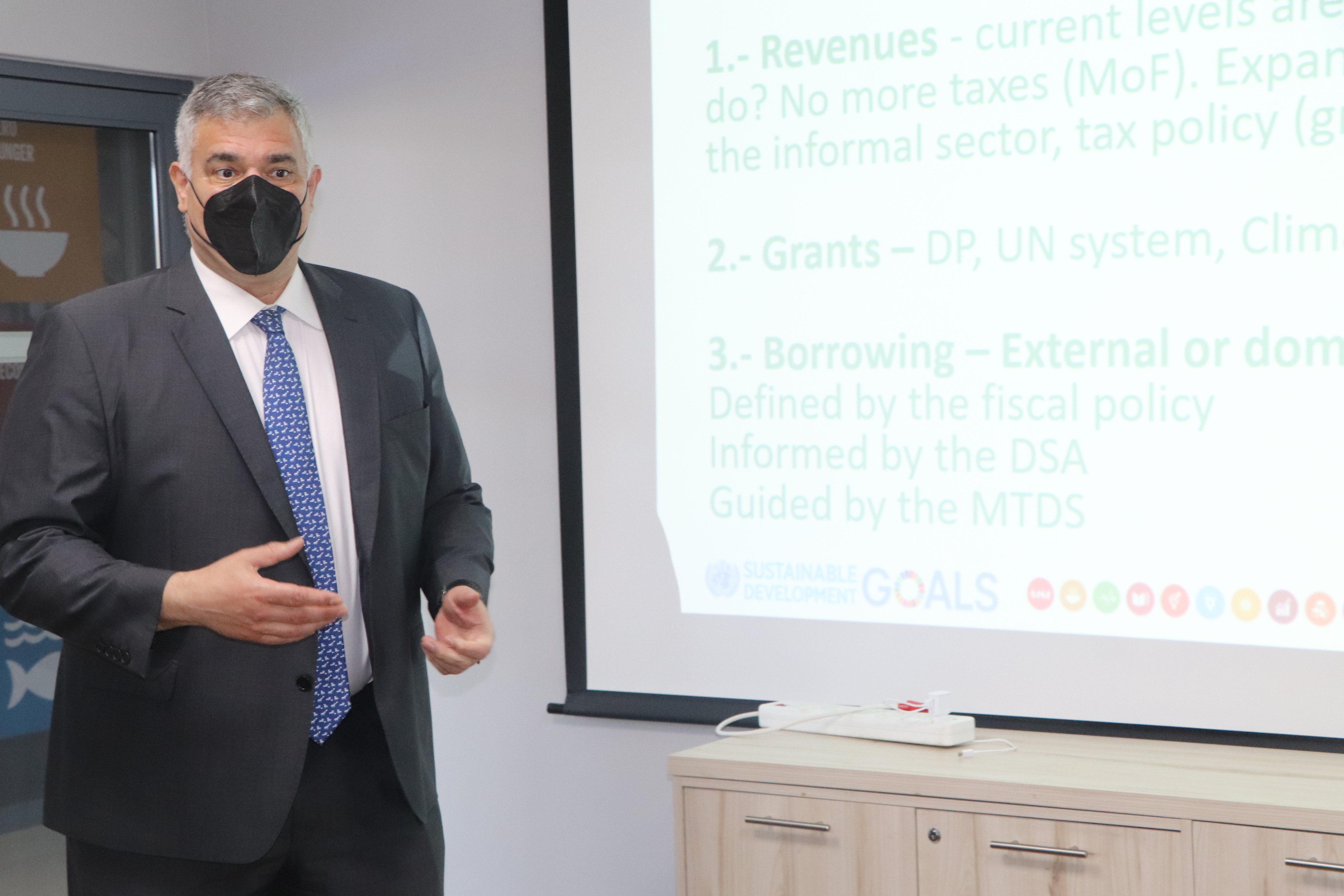UNDP Economic Advisor, Mr. Juan Carlos Vilanova.
By Mantoe Phakathi
As we embark on the Decade of Action for the Sustainable Development Goals, a review of the country’s funding streams and policies will be timely to enable Eswatini to achieve its development aspirations.
It is on that note that the United Nations Development Programme (UNDP) is supporting the Ministry of Finance as a lead entity in undertaking its Development Finance Assessment (DFA). The DFA has two pillars; identifying the existing financing sources available to the country and the legal and regulatory frameworks that govern them including tracking tools, and analysing processes being used to monitor them, and potential new sources of finances to fund the national development priorities for the coming years and the 2030 Agenda.
According to UNDP Economic Advisor, Mr. Juan Carlos Vilanova, the DFA process involves an assessment of how much financing the country received in the last 10 years. This includes Government revenue through taxes, grants, loans, private investments, and foreign direct investments.
“This will help the country to see how much resources it has mobilized in the past and also assess the financing needs for the next three to five years,” said Mr. Vilanova.
He said the DFA process also involves assessing policies and legislation that need to be reviewed to help in the mobilization of more sources. These include foreign investor laws, banking laws, budgetary laws, tax laws, and relevant policies.
“These findings will help the country to build the Integrated National Finance Framework (INFF), which involves a roadmap that identifies all the policies that need to be changed, and the tracking mechanism that needs to be installed,” he said.
He said the INFF will also align the support to new financing mechanisms, outline the role of different partners and come up with strategies of getting the private sector to invest in the identified priority areas. It is important to note that the INFFs are tools to finance national priorities and operationalize the Addis Ababa Action Agenda at the national level.
A country’s sustainable development strategy lays out what needs to be financed. INFFs spell out how the national strategy will be financed and implemented.
It has to detail the following:
· The process for bringing together a financing strategy, including agreed recommendations about how public and private financing policies can be strengthened;
· Agreed on steps to strengthen governance, coordination, and institutional structures, including capacity development priorities, for managing a financing strategy;
· Agreed on steps to adapt and supplement existing monitoring and review frameworks; and,
· Agreed on steps to be followed to undertake specific further assessments and diagnostics or to build the capacity of national institutions to undertake them locally.
Vilanova said INFFs present important advantages to the country by connecting financing and related policies with longer-term objectives and assisting in dealing with challenges relating to short-term-oriented decision-making. INFFs also allow policymakers to exploit synergies and manage possible trade-offs across different policies during implementation, and help countries manage the increasingly complex and changing financing landscape by helping to mobilize different types of financing appropriate for country-specific characteristics and risks.
While the Ministry of Finance takes the lead, the process involves close cooperation with the Ministry of Economic Planning and Development and the Ministry of Commerce, Trade, and Industry as well as partners including Parliament, Civil Society Organizations (CSOs), and the private sector.
“Each partner has its role. For example, Parliament would meet to check not just for the budget numbers but whether they reflect the national priorities,” said Mr. Vilanova.
CSOs can provide transparency discussion of the national priorities while the private sector can contribute to the policy issues that can develop the markets and promote FDI flows into the country.
The process of developing the INFF for Eswatini will be concluded in the last quarter of 2021.
(Mantoe Phakathi is the Communication Specialist at UNDP Eswatini)

 Locations
Locations